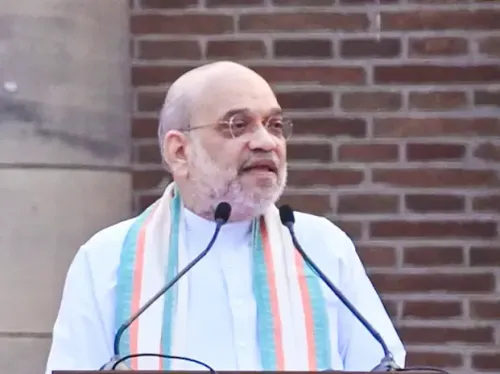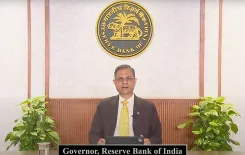Supreme Court Dismisses PIL Requesting BMC as Exclusive Planning Authority for Mumbai

New Delhi, Dec 16 (NationPress) The Supreme Court on Monday declined to entertain a public interest litigation (PIL) aimed at directing the Urban Development Department of the Maharashtra government to designate BMC (Brihanmumbai Municipal Corporation) as the exclusive and central authority for planning and sanctioning in the city of Mumbai.
A bench comprising Justices Surya Kant and Ujjal Bhuyan advised the petitioner, a non-government organization named Earth, to seek recourse in the Bombay High Court.
Recognizing the apex court's reluctance to address the petition, the counsel for the petitioner requested permission to withdraw the PIL. Consequently, the case was dismissed as withdrawn by the apex court.
The PIL contended that Section 40 of the Maharashtra Regional & Town Planning (MRTP) Act, 1966, which grants the state government the authority to appoint a Special Planning Authority (SPA) for designated areas, was enacted prior to the Constitution (74th Amendment) Act that became effective in June 1993.
This amendment introduced Part IXA, entitled 'The Municipalities' (Articles 243P to 243ZG along with Twelfth Schedule), which established the framework for the constitution, structure, and responsibilities of Municipalities. However, Section 40 was not revised to clearly outline the roles, powers, and functions of an SPA in relation to matters listed in the Schedule XII, the petition stated.
Despite this lack of clarity, the Urban Development Department continued to appoint multiple SPAs, which, according to the petition, undermined the planning and sanctioning capabilities of BMC. This ambiguity has reportedly hindered BMC's capacity to manage critical issues in Schedule XII, such as urban planning, land use regulation, building construction, road and bridge maintenance, and slum improvement.
The PIL, submitted through advocate Dilip Annasaheb Taur, asserted that this approach has stifled urban development and restricted citizens' access to essential services due to a lack of transparency and consistency in the SPA approval processes, the transfer of public amenities, and the execution of the 18 responsibilities outlined in Schedule XII.
The insufficient clarity in transferring amenities to BMC obstructs efficient urban planning and adversely affects residents, depriving them of vital services and facilities, it stated.
BMC, established under the Mumbai Municipal Corporation Act of 1888 (MMC Act), functions as both the governing body and planning authority for Mumbai as per the MRTP Act, 1966.
The petition noted that the presence of multiple planning authorities (lacking clear delineation of responsibilities) has resulted in certain operational inefficiencies, and the planning and sanctioning processes of the Slum Rehabilitation Authority (SRA) are fraught with significant shortcomings.









